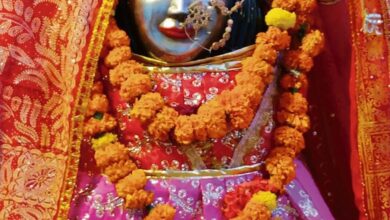Views| Shiva: Redeemer or Destructionist?
I used to be a Catholic, a Western Shaivite and a Shakta, and people often question me about why I worship destructive deities. This is because I have embarrassing tattoos of Kali and a dumb white guy named Trishula, and I am also a former Catholic. Even now, some have questioned why I worship devils. Since these are just the effects of their monocultural indoctrination and religious upbringing, I do not hold Abrahamic dualists responsible for their worries.

I see these queries as a chance to educate and broaden the minds of anybody who would be really interested in hearing from a Dharmika instead of their priest or pastor, since I have been both a Christian and a follower of Vedic darshana. Both Hindus and non-Hindus might get used to the idea that “this is all good and that is all bad.” I usually explain these issues to anyone who could get sucked into dualistic thinking like this.
The destroyer is the name given to the Hindu god Shiva. Due to ignorance and sometimes intolerance, some people in the West and the East, for that matter, misinterpret this. Today, understanding and compassion are what are required. At the very least, we all need to start seeing beyond the delusions of separation. We need to be able to understand allegory and discover common ground between ideas and viewpoints that first seem diametrically opposed but eventually enhance one another.
Most people only see the Abrahamic god as the creator. According to the Old Testament, this god destroyed approximately 300 million people, flooded the earth, and consigned most people to an endless torment when they died. As a result, this god is very destructive in his own right.
Hindus believe in a destructive deity who acts out of need rather than whim or retaliation. It makes sense only. In all facets of existence, creation is not sufficient on its own. Creation, preservation, and change are constants. The past, present, and future are eternal. Cellular, ecological, and cosmic perspectives all support this.
Food is necessary for our survival. Food is produced. We have to consume food. Its nutrients cannot remain in our tissues until they are digested. What cannot be digested has to be removed. Every single cell in our body is a newly regenerated cell in due course. We go hungry if we don’t eat. Food assimilation leads to emancipation and eventual death. If we can’t get rid of it, we get poisonous and end up dead. “Waste,” as we define it, has a function. It disintegrates once again into the elements, resuming the feeding cycle. Without a purpose, a structure cannot exist.
Destroying is thus a necessary component of creation. Hindus believe that Brahmaan is reflected in and extended across all of creation. Hinduism therefore defines “God” as the Creator, Sustainer, and Transformer. Operator: O; Generator: G; Destroyer: D. It’s only a direction in good order.
It’s a little misleading to call anything a “destroyer.” It has a bad connotation in the West, and thus, everything terrible connected to the divine is misinterpreted as demonic, harmful, or backwards.
Because Shiva and Kali are known as the God and Goddess of destruction and because they wield a trishula, or trident, some followers of the Abrahamic religions prefer to claim that they must be some kind of demons. There is very little to no description of what devils look like in the Bible and the Quran. For some, cartoons are just too familiar. They usually become scared when they view images of Bhairava or Kali Maa. In a way, a lot of Hindus may also be afraid.
Worshiping Kali and Bhairava is undoubtedly a severe matter. But in the end, we see that Kali is just as merciful as time (kaal/kala), which mends all wounds. Bhairava is the destroyer of desire, wrath, fear, and greed. He is both a “destroyer” and a restorer at the same time. As his name suggests, Shiva is the most considerate, gentle, and compassionate god, which is something we as devotees obviously know. “Siva” signifies graciousness, kindness, benignity, and benevolence.
It is restrictive to call Mahadeva just a “destroyer.” It may be better to use the phrase “transcend-er.” Nothing ever gets totally destroyed. Energy is created as matter disintegrates. Energy cannot be destroyed; it can only be altered. Shiva is the creator, preserver, and destroyer in the eyes of the Shiva/Shaktas. Various Sampradayas disagree. Whatever. Hindus must to understand that religion is not a sport. There is a god called Harihara, who was formerly more well-known than he is now. He is a combination of Shiva and Vishnu. Thus, there’s really no need to make Shaivism and Vaishnavism work.
Ultimately, it is said that creativity is bred by destruction. Hindu beliefs include rebirth and karma, as we can see. There are non-theistic and deistic people. The roles of the tri-dev (Brahma, Vishnu, and Shiva) are evident in both the spiritual and material realms, and this is further supported by the teachings of Hindu sages on rebirth and karma.
Karma exists in several forms and may manifest in numerous ways. Whether we comprehend it or not, every action has a response. regardless of the specific beliefs we have. There is an effect for every cause. This is valid for the fields of physics, biology, astronomy, psychology, and neuroscience.
rebirth? Every aspect of the natural world is a part of an observable cycle that, upon death, returns to its original state and spurs on new development. We are a part of development and nature.







